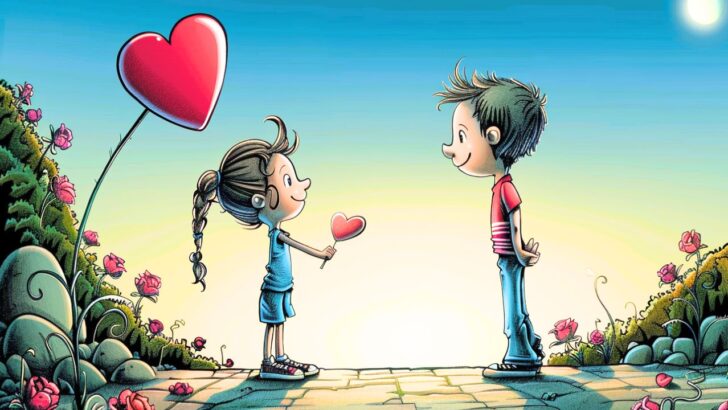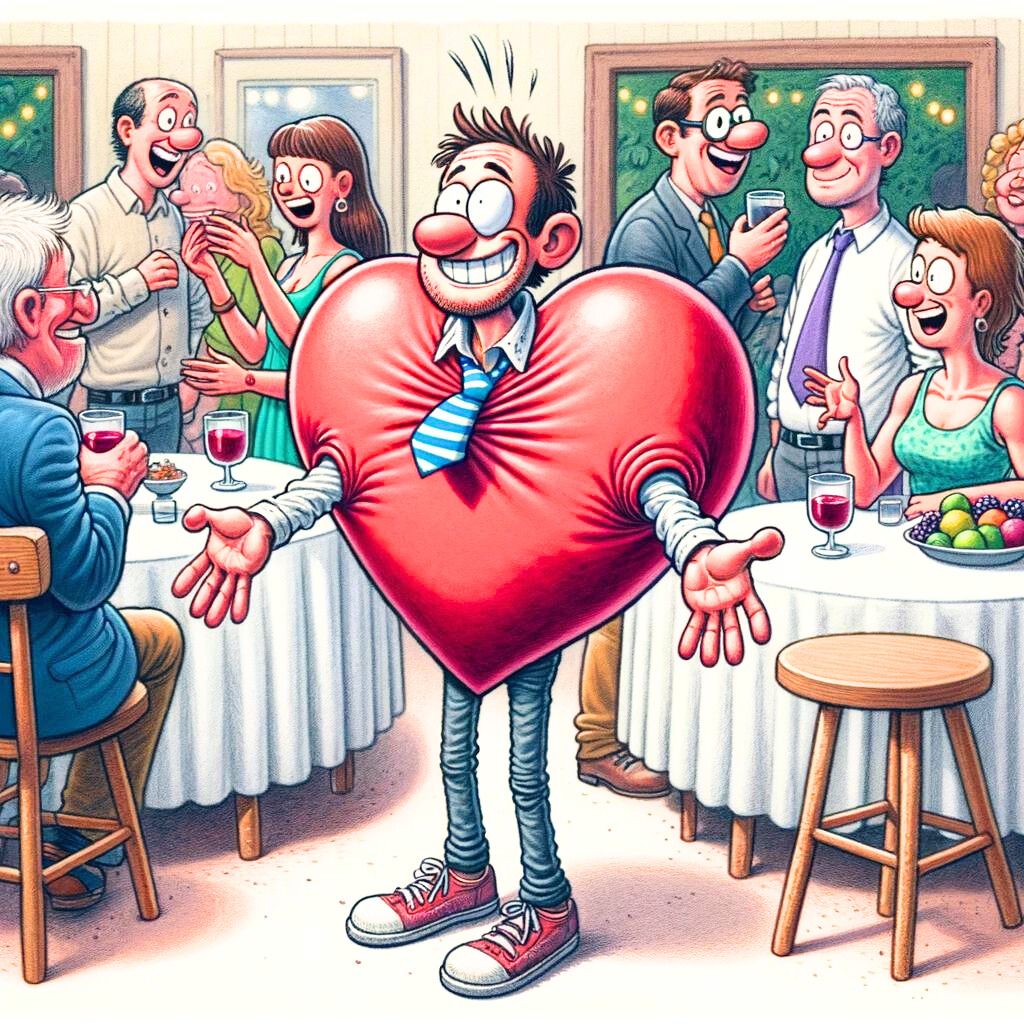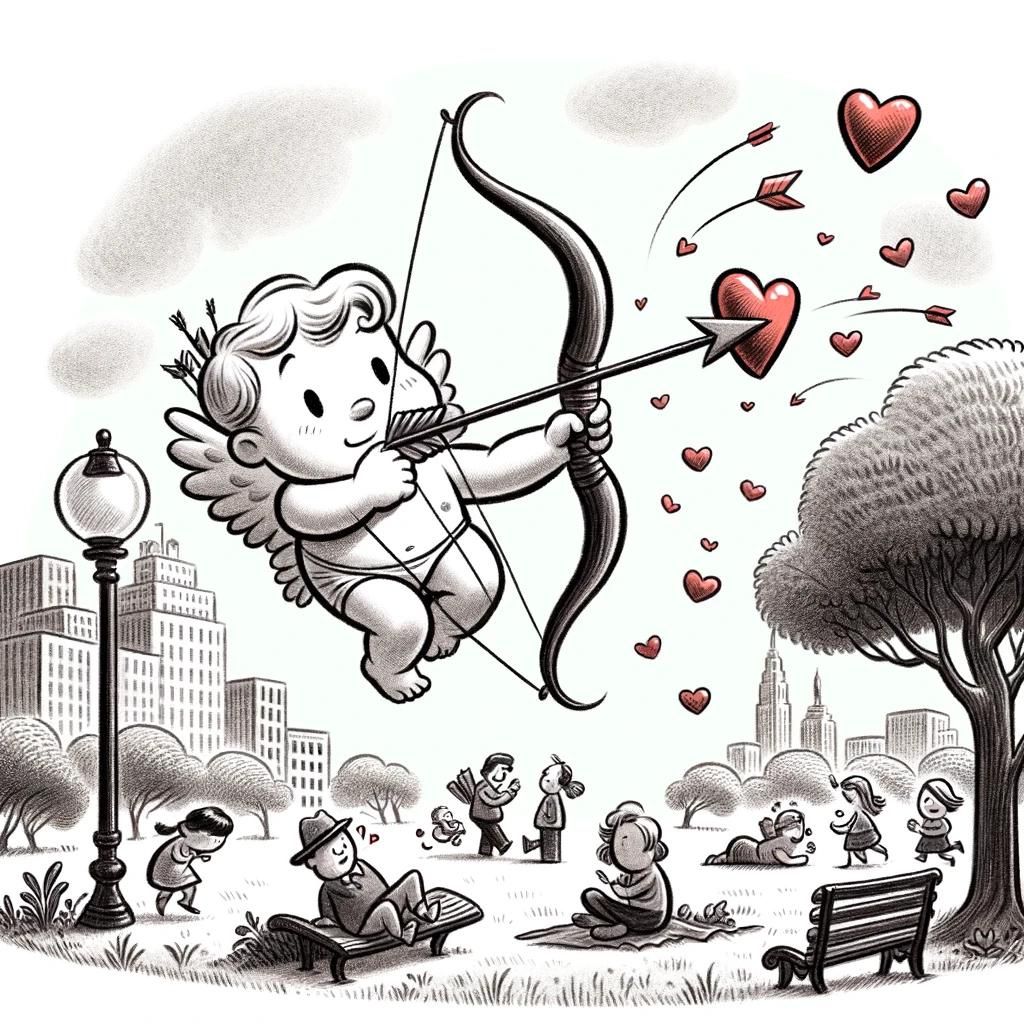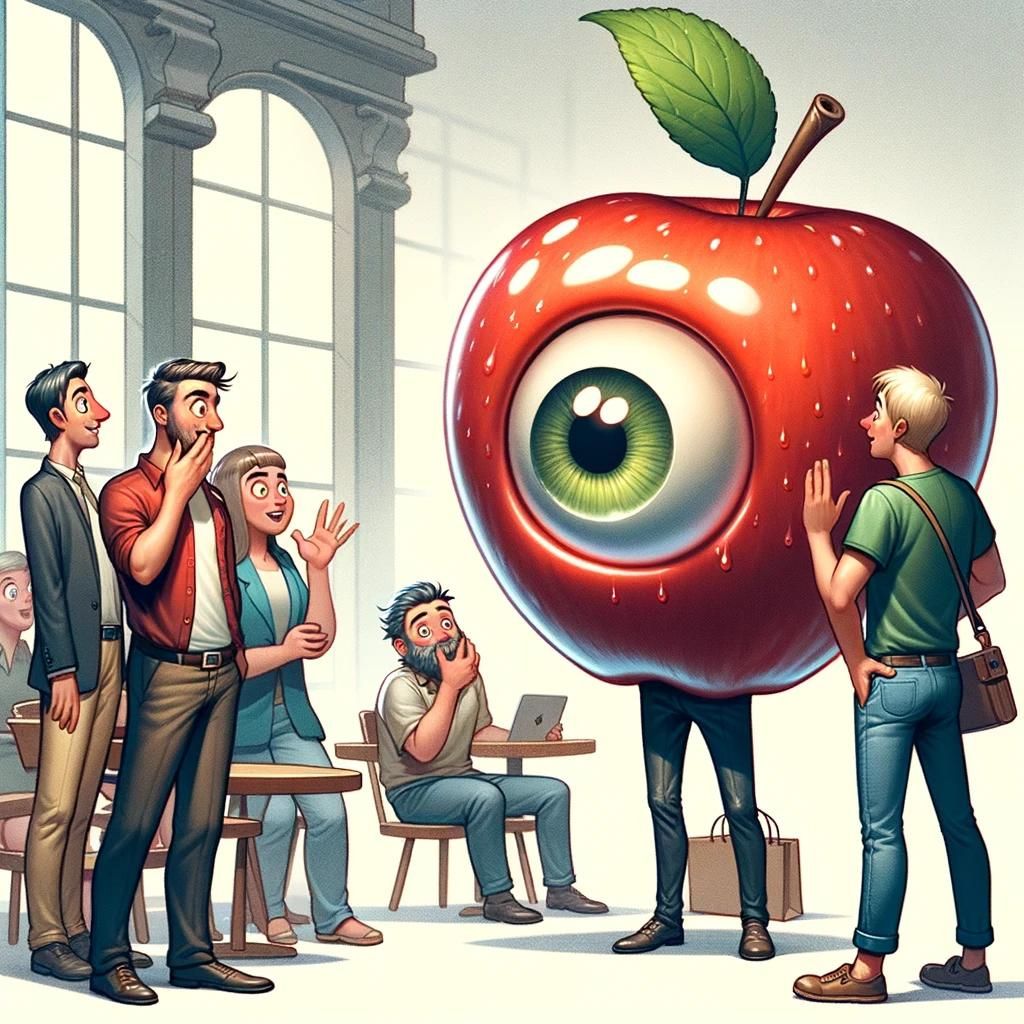Love, in all its twists and turns, often sneaks into our daily language with a bunch of heartfelt idioms that really bring out the colorful side of our emotions.
These sayings not only spice up our chats but also give us a peek into the deep and sometimes playful sides of human feelings.
From being so in love that you can’t see straight to those unexpected moments Cupid decides to shoot his arrow, each phrase has its own little story that connects to the ups and downs of our love lives.
1. Love is blind
“Love is blind” captures the idea that affection can obscure our judgment about a person’s flaws and imperfections. This expression suggests that when one is in love, one often overlooks or fails to see the faults in the person they adore.
This idiom is commonly used to describe situations where individuals are perceived to be making irrational choices in love or when their affection leads them to ignore obvious shortcomings in their partners.
The phrase has ancient origins and has been used in literature for centuries, reflecting a recurring theme across different cultures and epochs about the overpowering nature of love.
It vividly symbolizes the notion that love can metaphorically blind a person, making them see only what is best, even when reality might suggest otherwise.
Example 1: Despite his friends pointing out his partner’s manipulative tendencies, John’s affection remained unchanged—truly, love is blind.
Example 2: She knew he was far from perfect, but to her, love is blind, and all she could see were the things that made her heart sing.
2. Wear your heart on your sleeve
“Wear your heart on your sleeve” is an idiom that describes someone who openly shows their emotions or feelings rather than keeping them hidden. This phrase suggests vulnerability and transparency in how a person expresses themselves, making it easy for others to discern their emotional state.
Traditionally, this expression comes from the custom during medieval jousts where knights would wear a token from their ladies on their sleeves, showing their emotions and allegiances openly.
In modern usage, it often carries a positive connotation, valuing emotional openness as a trait that fosters clear communication and sincerity in relationships.
It is particularly effective in discussions about relationships or personal feelings, providing a vivid image of emotional exposure.
Example 1: You can always tell how David is feeling about the project; he tends to wear his heart on his sleeve.
Example 2: During the meeting, she wore her heart on her sleeve, making it clear how passionate she was about the new initiative.
3. Head over heels
5. Puppy love
“Puppy love” refers to an intense but relatively shallow romantic attachment, typically during childhood or adolescence. This idiom likens young love to that of a puppy’s affection, which is earnest and adorable but lacks the depth and permanence associated with more mature relationships.
The term is often used to describe young people’s first crushes or infatuations, capturing the innocence and simplicity of their early experiences with love. It suggests a kind of love that is viewed as transient and somewhat naive, expected to fade as the individuals grow older and gain more life experience.
This idiom is commonly employed when discussing relationships among teenagers or children, providing a gentle way of acknowledging their feelings while also recognizing their likely temporary nature.
Example 1: They thought their romance would last forever, but it was just puppy love.
Example 2: Watching her daughter talk endlessly about her classmate, she smiled, remembering the days of puppy love.
6. Match made in heaven
A “match made in heaven” describes a relationship or partnership that is perfectly harmonious and successful. This idiom suggests that the pairing is so ideal and well-suited that a divine force must have preordained it.
The phrase conveys the sense of an ideal union, whether in romance, friendship, or business, where all elements align so perfectly that the relationship seems destined to succeed.
The expression often emphasizes the rare and remarkable compatibility between two people, suggesting that their coming together brings out the best in each other and leads to mutual happiness or prosperity. It also reflects a cultural recognition of the ideal of a “perfect match,” which flawlessly fulfills all expectations.
Example 1: Everyone agrees that Lisa and Jamal are a match made in heaven; they complement each other very well.
Example 2: Finding a business partner who shares your vision and work ethic is like finding a match made in heaven; it just makes everything easier.
7. Old flames
“Old flames” refers to former romantic partners or past lovers who once shared a significant emotional connection. This idiom uses the flame metaphor to represent the passion and warmth that characterized the relationship during its existence, suggesting that the embers of that past affection may still linger even after the relationship has ended.
The phrase often evokes a sense of nostalgia and sometimes unresolved feelings that can reignite under certain circumstances. It is used when discussing past relationships in conversations, reflecting on the lasting impact and memories of those former loves.
“Old flames” can also imply the possibility of rekindling a relationship, highlighting the enduring nature of some emotional bonds despite the passage of time or changes in life circumstances.
Example 1: At the high school reunion, he felt a bit nervous about seeing his old flame.
Example 2: They were each other’s old flames, and whenever they met, it was clear there was still a spark between them.
8. Steal someone’s heart
“Steal someone’s heart” is an idiom used to describe the act of winning over someone’s deep affection or love, often unexpectedly or swiftly. The imagery of theft adds a playful, dramatic element, suggesting that the person whose heart is stolen is utterly captivated and charmed against their initial intentions or without their immediate realization.
This phrase is commonly used in romantic contexts to describe the moment when one person becomes completely enamored with another. It implies a powerful, irresistible allure that leaves a lasting impression on the heart of the enamored.
“Steal someone’s heart” can denote the initial infatuation and the deeper, enduring affection that follows, emphasizing the transformative impact of genuine emotional connection.
Example 1: The first time he heard her laugh, he knew she had stolen his heart.
Example 2: With her kind gestures and warm smile, she not only won his affection but also completely stole his heart.
9. Cupid’s arrow
“Cupid’s arrow” is an idiom stemming from the mythology of Cupid, the Roman god of love, who is often depicted as a cherub with a bow and arrow. When Cupid’s arrow strikes someone, it means they have suddenly and deeply fallen in love, as if by magic or divine intervention. The arrow symbolizes the involuntary and powerful nature of falling in love, which can seem as sudden and impactful as being struck by an arrow.
This phrase is frequently used to describe the moment of initial attraction or infatuation that feels instant and overwhelming. It captures the idea that love can strike unexpectedly, profoundly altering one’s emotions and perspective without prior warning.
“Cupid’s arrow” often conveys a sense of destiny or fate in the formation of a romantic relationship, suggesting that the love experienced is both inevitable and uncontrollably deep.
Example 1: When Jake met Clara, it was as if Cupid’s arrow had struck him; he couldn’t think of anything else but her.
Example 2: They never planned on falling in love, but Cupid’s arrow has its own plans, and now they are inseparable.
10. The apple of my eye
“The apple of my eye” is an idiom that refers to someone who is cherished above all others. It is often used to express deep affection and pride in a loved one. The phrase originates from an old English expression that used “apple” as a term for the pupil of the eye, a crucial and protected body part.
This metaphor highlights the value and preciousness of the person being described.
The idiom is commonly used in familial and romantic contexts to signify the special status of the individual in the speaker’s life. It emphasizes the idea that the person is as important and essential to the speaker as their vision—something to be cared for and guarded closely.
“The apple of my eye” conveys a sense of irreplaceable value and deep affection, making it a powerful expression of emotional attachment.
Example 1: His youngest daughter was the apple of his eye, and he would do anything to see her happy.
Example 2: Throughout the years, she remained the apple of his eye, a testament to their enduring love.
11. Love at first sight
“Love at first sight” is an idiom that describes the phenomenon of falling in love with someone from the very first moment one lays eyes on them. This expression captures the immediate and intense attraction that feels instantaneous and profound, suggesting a romantic destiny or a preordained connection.
This phrase is popular in romantic tales and media, where characters experience an overwhelming attraction that sets the course of their love story. It conveys the idea of an undeniable and powerful connection that feels magical and destined, often used to emphasize the dramatic and enchanting nature of a romantic encounter.
“Love at first sight” is often invoked to describe relationships that begin with a sudden, deep attraction, suggesting that such emotions are both real and compelling.
Example 1: When he entered the room, it was love at first sight, and she knew her life would never be the same.
Example 2: They met by chance at a friend’s wedding, and it was love at first sight—something neither of them had believed in until that moment.
12. Playing the field
“Playing the field” is an idiom used to describe someone who is actively engaging in multiple romantic relationships or exploring many potential options in love without committing to any single one. The imagery of a “field” suggests a wide, open area where one can move around and choose among various possibilities, similar to an athlete playing in different parts of a sports field.
This expression is often used when discussing dating behavior that involves casual or non-exclusive interactions. It implies a strategy of keeping one’s options open to avoid commitment or find the most suitable match through comparison and choice.
“Playing the field” can have positive and negative connotations, depending on the context and the attitudes towards dating and relationships expressed by those involved.
Example 1: After his last serious relationship ended, he decided to play the field for a while before settling down again.
Example 2: She wasn’t interested in playing the field; she was looking for a relationship that could lead to something long-term.

Hey fellow Linguaholics! It’s me, Marcel. I am the proud owner of linguaholic.com. Languages have always been my passion and I have studied Linguistics, Computational Linguistics and Sinology at the University of Zurich. It is my utmost pleasure to share with all of you guys what I know about languages and linguistics in general.













